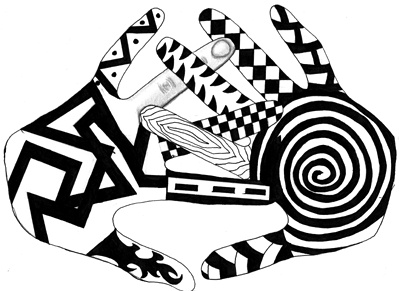All Nonfiction
- Bullying
- Books
- Academic
- Author Interviews
- Celebrity interviews
- College Articles
- College Essays
- Educator of the Year
- Heroes
- Interviews
- Memoir
- Personal Experience
- Sports
- Travel & Culture
All Opinions
- Bullying
- Current Events / Politics
- Discrimination
- Drugs / Alcohol / Smoking
- Entertainment / Celebrities
- Environment
- Love / Relationships
- Movies / Music / TV
- Pop Culture / Trends
- School / College
- Social Issues / Civics
- Spirituality / Religion
- Sports / Hobbies
All Hot Topics
- Bullying
- Community Service
- Environment
- Health
- Letters to the Editor
- Pride & Prejudice
- What Matters
- Back
Summer Guide
- Program Links
- Program Reviews
- Back
College Guide
- College Links
- College Reviews
- College Essays
- College Articles
- Back
Unhelpful Hands
My hands cracking from cement paste and my pants covered in dust I made my way down the short, steep path between the old community center and what would become the new one. Across the thin path and past the rainbow fence, girls stood gathered around cement wash stations, elbow deep in the chickens they had helped slaughter and were preparing for lunch. Up the hill girls had had gone off in the wake of a machete wielding indigenous woman to help clear trails, while another group helped to dig holes needed to install a new lighting system for their sandy soccer field. While the scene sounds promising, the local community members did the bulk of the work, they were strong and efficient with unspoken systems for accomplishing tasks many of us had no experience with. As I reached the bottom of the path and received a lesson in cutting carrots, I was more of a hinder than a help.
As a gaggle of U.S. girls, we had already encountered many unfamiliar situations – from having to purify our water, to throwing out toilet paper in the trash and dressing not in fitted jeans or short dresses, but in adventure pants and baggy t-shirts – but helping had not been an obstacle we expected. What was meant to be our service project had become catered to us, we were now five year olds with well-intentioned, clumsy, incapable hands. We had arrived with plans to help, but were now the ones being helped.
A few days later my fifteen classmates and I sat crowded on the porch of our hostel in Otavalo, Ecuador as one of our teachers read aloud Ivan Illiche’s “To Hell with Good Intentions.” This speech, which calls into question the intentions, meanings, and benefits of service, sparked a question that would remain with us for the rest of our three-and-a-half month journey – what is should service be?
As students of a $20,000 program, we are all well off, or at least well enough, and when we arrived in rural villages, towns, and even cities we did what Illich describes as “advertising the American middle class.” Even as we made an effort to immerse ourselves in the task at hand, swallowed down corn soup for three meals a day, or attended mass in traditional dress, Illich would argue that we remained an advertisement not for the futures achievable for the people living in rural Ecuador, but for the ones we would fulfill thousands of miles away at U.S. universities. Our presence would only inspire false hope and begin to discredit the lives led by local people. And in my experience this is not entirely untrue. Children practiced their English with us, and teenagers told us of their hopes to visit the States. It seemed like wherever we went people believed in the idea of the American Dream.
Illich would also argue about our intentions for service. Each year thousands of trips leave the U.S. bound for the “less fortunate.” But as these trips leave and service becomes style its true meaning gets lost, and people begin jumping on board not for the sole purpose of helping others and learning about their cultures, but as a social event or something to include on their college application. This in conjunction with our United State “we know best” complex obstructs our ability to listen. Service means putting yourself at the dispense of others and fulfilling their needs. In our rush to help, or at least look like we have, we forget to ask what it is that would be most helpful to the people, and leave them instead with a new found dependency on what we brought, what we preached, or with a half finished project that will benefit no one.
Service should be taken with a grain of salt. Under the right circumstances when a program has established a relationship with the people and volunteers have been well educated, the results can be beneficial. But when a group of U.S. citizens shows up with an unrecognized disregard for the culture they have arrived in, the project doesn’t work out well. We should remember that service is at the benefit of the people, and we come as a second thought. Service is not for the serving, but for those we aim to help.

Similar Articles
JOIN THE DISCUSSION
This article has 0 comments.
